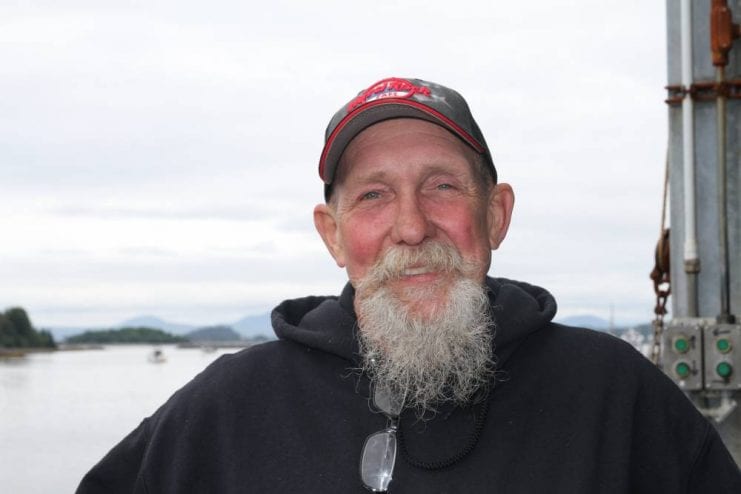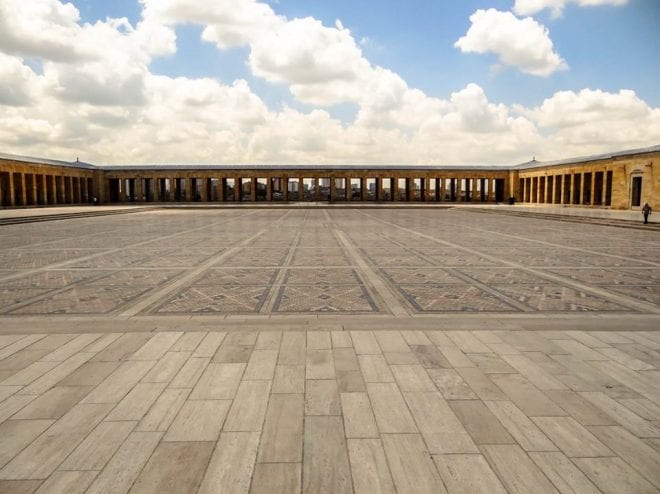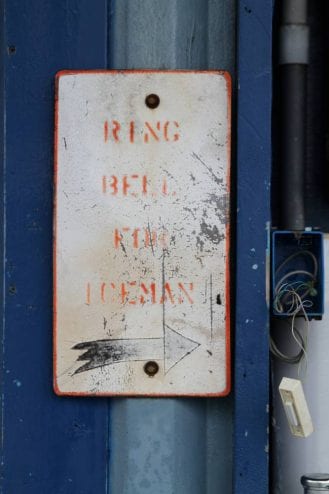
Everyone calls him the Iceman. The fishermen in town all know him. He manages the docks and the icehouse at the Seafood Producers Cooperative on Katlian Street. And he rarely goes to work without one piece of equipment: his camera. In the rare moments of downtime during his twelve-hour shifts, the Iceman takes pictures — thousands of them. His name is Don Koston.
“I’ve been working here so long,” he says, “all the bosses know I walk around with a camera.”
By day, he pumps ice onto boats and coordinates drop-offs of fish totes from a couple hundred fishermen. “[I] try to keep things rolling, keep fishing running over that bull rail,” he says, pointing out towards the water.
Don treats the docks like his living room: he knows the fishermen by name and watches their kids grow up. He spends ten or twelve hours a day there in the summertime. Last year, he worked two hundred and thirty-six days straight. And he takes pictures, constantly. He estimates he has some ten thousand pictures on various terabyte external hard drives
Don lives on a boat to keep costs down, so he can save for gear, and plan for future travel. At 61, he’s thinking about retirement. He wants to go back to Europe, where he’s been four times before. He shows me pictures of Mustafa Kemal Atatürk’s tomb in Ankara, Turkey from a trip a few years back.

But mostly, he captures his surroundings in Sitka.
“It’s right there in front of you,” he says. “You’ve got eagles galore, sea lions, sea otters, swimming past, a whale every now and then. The other day I shot 600 pictures at work, which I think is kind of crazy.” He laughs.
His face softens when he talks about the beauty of where he lives. Photography lets him share that sense of wonder and admiration. And it’s easy to travel with.
“You can carry it on your back,” Don says. “It’s fun, I just think it’s enjoyable. Everybody loves pictures.”
Compact hobbies work well for Don – someone who spent much of his adult life itinerant. His tenure at the docks in Sitka is somewhat out of character. He has been to 36 of the 50 states, never landing anywhere for longer than four years at a time.
Then, he got to Sitka. “A fluke,” he called it. He tried fishing but didn’t care for it. He worked the slime line at the coop processing plant for a while, until a job opened up on the dock. That was twenty-six years ago.

He has built relationships with fishermen, and their families, through his job on the docks over the years. “So many long term relationships with a lot of different families,” he said. “I really like that part.”
Don invested more and more in photography the longer he stayed in Sitka, working the dock. He started taking pictures on camping trips. He’d trek up above the tree line and camp for four, five days at a time. He always brought a cheap camera with him. “I’d always take it in my backpack in a ziploc baggy so it wouldn’t get wet,” he says.
Over the years, the camera has gotten better. He reads, a lot, about what equipment to buy and has taught himself. He estimates he has about $5000 worth of equipment now. He hasn’t bought a professional camera yet — that’s too expensive. Instead he spends on good lenses. His latest purchase was a macro lens that lets him zoom in on wildlife from a distance: he captures an eagle on Japonski Island from the dock in perfect clarity. He shops for deals: the lens is worth some $950; he snagged it for about $400.
But he never thought much of his photographs, which he talks about as a habit more than an artistic endeavour. He wanted to capture the scenery around him. And to share it.
“Everybody tells me I have a great eye, I’m like I just point and shoot,” he says. “The camera is doing it all.”
Don makes enough to get by and invest in his photography. He shares his pictures online when he takes the time to comb through what he shoots and edit the best takes. That work he finds tedious. So he just keeps shooting pictures.
“I take so many pictures I don’t have time to sit there and try and sell them,” he said. He’d like to sell them, but for now, he mostly just shares them with his friends on Facebook. And his account is easy to find: Don Hielo. That’s the Spanish word for ice.































